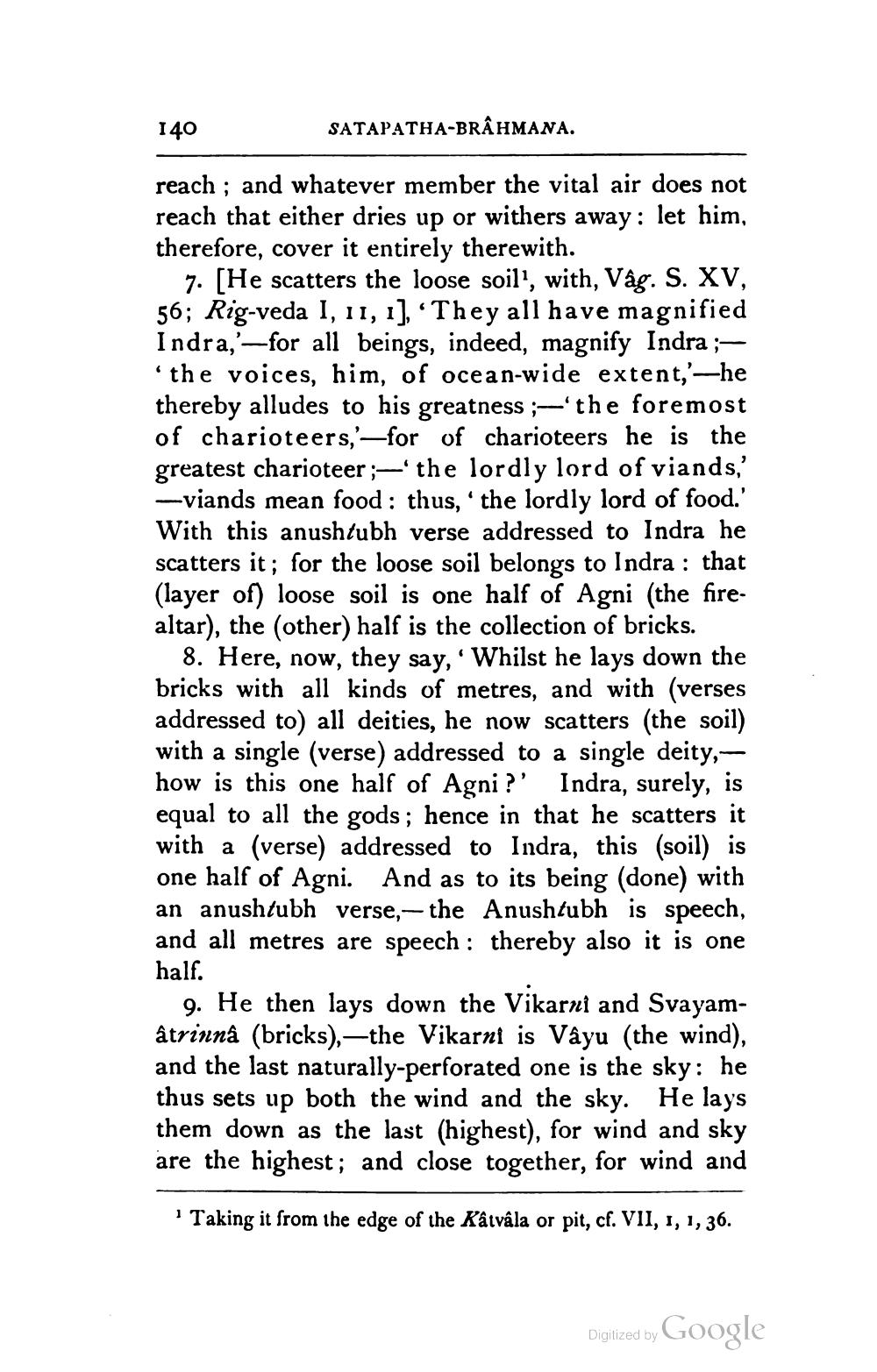________________
SATAPATHA-BRAHMANA.
reach; and whatever member the vital air does not reach that either dries up or withers away: let him, therefore, cover it entirely therewith.
7. [He scatters the loose soil', with, Vâg. S. XV, 56; Rig-veda I, 11, 1], 'They all have magnified Indra,' for all beings, indeed, magnify Indra;— 'the voices, him, of ocean-wide extent,'-he thereby alludes to his greatness;-'the foremost of charioteers,' for of charioteers he is the greatest charioteer; the lordly lord of viands,' -viands mean food: thus, the lordly lord of food.' With this anushubh verse addressed to Indra he scatters it; for the loose soil belongs to Indra: that (layer of) loose soil is one half of Agni (the firealtar), the (other) half is the collection of bricks.
•
8. Here, now, they say, 'Whilst he lays down the bricks with all kinds of metres, and with (verses addressed to) all deities, he now scatters (the soil) with a single (verse) addressed to a single deity,how is this one half of Agni?' Indra, surely, is equal to all the gods; hence in that he scatters it with a (verse) addressed to Indra, this (soil) is one half of Agni. And as to its being (done) with an anushubh verse, the Anushubh is speech, and all metres are speech thereby also it is one half.
140
9. He then lays down the Vikarni and Svayamâtrinnâ (bricks),—the Vikarni is Vâyu (the wind), and the last naturally-perforated one is the sky: he thus sets up both the wind and the sky. He lays them down as the last (highest), for wind and sky are the highest; and close together, for wind and
1 Taking it from the edge of the Kâtvâla or pit, cf. VII, 1, 1, 36.
Digitized by
Google




